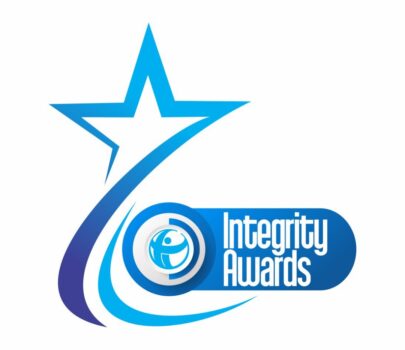Introduction
Combating corruption is a daunting task. However, strategies such as sanctions, policies, laws, and bye-laws have

been adopted in most countries in the fight against corruption.
Awards are present in almost every society but are not considered as an anti-corruption tool. Awards, as a form of incentive, are an important strategy that can be used in the fight against corruption. An Award is a very vital tool in both the public and private sector because of its effect on human behavior—it can boost an individual’s esteem, identity, status, and reputation. Awards come in various forms such as orders, decorations, prizes, and titles. Awards have an influence on the recipient’s mindsets and behavior, which invariably impacts their venality.
Ghana’s anti-corruption fight so far
The deleterious effects of corruption on Ghana’s development cannot be overemphasized. The country is said to be losing $3 billion (GH¢13.5bn) every year through corruption, the Deputy Commissioner of the Commission on Human Rights and Administrative Justice (CHRAJ) has said.

In the country’s political history, the perception of corruption has been cited as one reason for military intervention in governance. Given the effects of corruption, successive governments have attempted to ameliorate if not end it.
The post-independence era has witnessed a litany of national anti-corruption strategies. Among these have included: moral crusades through the help of religious and community leaders to exhort citizens to uphold the values of integrity and to manifest high moral ethics in their personal lives; confiscation of properties found or believed to have been corruptly acquired by public office holders; declaration of a zero tolerance policy for corruption; strengthening the nation’s anti-corruption legislative framework through the passage of several anti-corruption laws; embarking on public sector and financial management reforms; and strengthening national anti-corruption institutions such as the Ghana Police Service, Commission on Human Rights and Administrative Justice (CHRAJ) and the erstwhile Serious Fraud Office (SFO).
Learning from the shortcomings of previous anti-corruption strategies particularly the Criminal Offences Act (Act 29) of 1960, and the evolving nature of corruption, Ghana in 2011 passed the National Anti-Corruption Action Plan (NACAP). NACAP among other things provides a benchmark to assess the performance of stakeholders, especially government, in the fight against corruption. It adopts a long-term strategic perspective and utilizes a three-prong approach to the fight against corruption, namely: prevention (education), investigation and enforcement.
In 2017, a new arsenal in Ghana’s anti-corruption framework was passed—the Special Prosecutor Act, 2017, Act 959. The act came to bolster the anti-corruption fight by providing for an independent prosecutor to fight corruption without fear or favor.
After years of advocacy and engagements, the crusade for Right to Information (RTI) has been won. The president assented to the RTI Act, adding another but important tool in Ghana’s anti-corruption crusade.
Although the 2018 Transparency International corruption Index showed marginal improvement for the country, there still remains an uphill task in the anti-corruption crusade. As Andersen et.al. 2011, aptly puts it “Corruption is unquestionably a governance failure one would like to dispose of, yet combating it has not proven easy.” The Vice President Dr. Bawumiah at a recent program also bemoaned the strain in combating corruption—”When you are fighting corruption, as I say, you are fighting demons and principalities…”.
How Effective Has Sanctions Been in the Fight Against Corruption?
Sanctions are the basis of most anti-corruption policies and strategies. They serve as deterrence to potential violators of regulations or laws. It’s rare for a sanction mechanism to be absent in an anti-corruption strategy.
However, the effectiveness of sanctions depends on the risks of being caught, making corruption a highly rewarding but low-risk venture. As a result, in societies/situations where the risk, financial and social costs of engaging in corruption is low as compared to acting in integrity, sanctions are less effective. This explains why in spite of many sanctions on paper in most countries to curb corruption, there is growing impunity of corrupt practices (Wegner, Schönerlein and Biermann 2013).
In addition, sanctions can help shape behaviour in a manner that encourages adherence to a certain standard, but they seldom provide motivation to go beyond this minimum, often legal, the requirement (Wegner, Schönerlein and Biermann 2013).
The Ghanaian society is patrimonial in nature with informal relations and family connections reflecting in societal structures. These factors fuel corruption and serve as a hindrance to sanctions as an anti-corruption tool. Ayee, 2016 posits that Ghanaian society generally does not want to apply sanctions. Where punishment and sanctions are applied at all, they are selective.
Why Ghana needs an Integrity Award
Awards are pervasive in modern societies. They are normally non-monetary, but in a few cases, awards have been accompanied by monetary sums. The honor of receiving an award exceeds the importance of cash prices attached to it. It is, therefore, safe to assume that individuals will be intrinsically satisfied to be recognized with a “cashless award”.
In Ghana, the use of awards as a potent tool to complement sanctions to curb corruption is not a novelty. In 2016, the President’s advisor on Governance and Corruption, Mr. Daniel Batidam revealed the intention of the government to launch an Integrity Awards aimed at acknowledging and encouraging incorrupt officials (“Mahama to launch Integrity Awards to honour incorruptible officials” 2015). However, this award scheme did not see the light of day.
Dr. Nicholas Atampugre, an International consultant and Activist for Social and Political Transformation (SJC) also added his voice to the need for a National Integrity Award Scheme by urging Government to as a matter of urgency institute one in 2017. Dr. Atampugre made the call at a program organized by the Social Justice CLUB (SJC) in Bolgatanga when he delivered a lecture on the topic “the Significance of this Ghana’s Republic Day and Thereafter.” (“National Integrity Awards’ can address corruption issues” 2017).
Although corruption is generally analyzed as a social phenomenon, especially in comparative research, it is from the decisions of individuals that corruption stems (Groenendijk, 1997). The self-satisfaction or actualization of being recognized in society with an award plays a key role in people’s decision to conform and act with integrity. That is to say, awards provide for the innate human desire for social recognition and hence serves as a valuable tool to influence behavior. In fact, a nationwide survey conducted in 2000 by the Centre for Democratic Development (CDD) lists among others, lack of effective incentive mechanism, as a cause of corruption in Ghana.
Awards as an incentive tool have received little attention in the literature, however, there are few scholars who have conducted empirical work on the subject.
Frey and Gallus, 2014, argue that awards forge special ties of loyalty. A recipient of an award enters a bond of loyalty with the giver (awarding entity). The awardee would tend to abide by the general views held by the giver. In this sense, the Integrity/Corruption awardee continues to portray exemplary behavior to uphold the anti-corruption view of the giver.
Awards in themselves raise welfare. Honoring a person with an award serves to bolster the norms of others undertaking similar activities or upholding similar attitudes (ibid). When a public office holder is awarded for putting up incorruptible behavior in his or her work, there is a greater tendency of other public servants performing similar duties to eschew corrupt behaviors. The effect may not be rapid, but as integrity awards gain momentum others will desire to bask in that glory. Ambrose and Kulik, 1999, supported this assertion by arguing that non-recipients of awards learn about the performance of the winners that resulted in the receipt of the award. With this information, they can update their understanding of the requirements for winning the award.
Awards are handed out according to a broad set of criteria. In typical Integrity Awards, honest behavior will feature heavily. The tournament characteristics of awards will cause potential recipients to strive to meet these criteria. By these attempts of meeting the stated criteria, awards will help mitigate corrupt practices.
Zúñiga, 2018, argues that an incentive driven approach, which appeals to an individual’s sense of moral responsibility and encourages the adoption of principles of integrity, could be a valuable complement to a deterrence approach to the anti-corruption fight.
An award has been shown to be an incentive to influence human behaviour. Awards offer a “feel-good” effect on recipients regardless of the monetary or status consequences. Awards also generate social prestige and recognition among peers and promote a competitive environment, which many people enjoy irrespective of the outcome (Frey and Neckerman, 2008).
In addition to serving as incentives, awards can help establish role models, spread information about successful and desirable behaviour and create loyalty. For these reasons, awards have the potential to serve as anti-corruption tools (Roberto Martinez B. Kukutschka, 2018).
A salient feature of awards as an incentive tool is the retention of its value. The awarding institution must be very diligent in selecting individuals or organizations that wins the award. Frey and Gallus, 2014, in their paper The Power of Awards cited how the reputation of the World Wildlife Fund (an integrity award) was harmed when its Honorary President, the King of Spain, was caught hunting elephants and needed to have his title revoked. Additionally, since awards are kept scarce and handed out to just a few, there should be no room for non-recipients to question the integrity or projects of the winners. With such diligence and measures in place, the prestige attached to the awards will rise compelling people and organizations to avoid corrupt practices.
Awards as an incentive to curb corruption are not new in the anti-corruption space. The Coalition for Integrity Awards in the USA, Integrity Idol in Liberia, Kenya, Nigeria exists to counter corruption and to inspire public officials to be more honest in their work. Ghana must not be left behind.
The fight against corruption in Ghana has relied more on sanctions to achieve its goals. As the Ghanaian society develops and corruption becomes more complex, there is a need to complement sanctions with an award system. Like the carrot and stick approach, the system need not punish only but also reward deserving organizations and individuals. A National Integrity Awards for Ghana must be added to the anti-corruption tool kit. And it must be done now.
References
Ambrose, M., Kulik, C. 1999. Old Friends, New Faces: Motivation Research in the 1990s. Journal of Management 25, 231-292.
Andersen, T. B., Bentzen, J., Dalgaard, Carl- John and Selaya, P. (2011) “Does the Internet Reduce Corruption? Evidence from the U.S. States and Across Countries.” World Bank Economic Review, 25:387-417.
Bruno S. Frey and Jana Gallus The Power of Awards. Econ. Voice 2014; aop .
Fighting Corruption is Like Fighting Demons https://www.myjoyonline.com/politics/2019/June-1st/fighting-corruption-in-ghana-is-like-fighting-demons-bawumia.php
Frey, B. and S. Neckermann. 2008. “Awards: A view from psychological economics” Working Paper No. 357. Zurich: Institute for Empirical Research in Economics, University of Zurich.
Ghana loses more than $3bn yearly through corruption https://www.graphic.com.gh/news/politics/ghana-loses-more-than-3bn-yearly-through-corruption.html
Joseph Atsu Ayee, 2016. The roots of corruption: The Ghanaian enquiry revisited. IEA Governance Newsletter Vol. 21 No.4.
Mahama to launch Integrity Awards to honour incorruptible officials.
https://www.myjoyonline.com/politics/2015/November-30th/mahama-to-launch-integrity-awards-to-honour-incorrupt-officials.php
National Integrity Awards can address corruption. https://www.ghanaweb.com/GhanaHomePage/NewsArchive/National-Integrity-Awards-can-address-corruption-issues-Group-556406
NICO GROENENDIJK A principal-agent model of corruption. Crime, Law & Social Change 27: 207–229, 1997. 1997 Kluwer Academic Publishers
Wegner, S., J. Schöberlein and S. Biermann. 2013. “Motivating business to counter corruption: A practitioner handbook on anti-corruption incentives and sanctions”. Berlin: Humboldt- Viadrina School of Governance.
Zúñiga, N. 2018. “Behavioural change against corruption”. U4 Expert Answer. Bergen: Chr. Michelsen Institute.
What do you think about this piece? Share your comment in the comment thread and share the story using the social media buttons above. You may reach the editor on 0249579664. Thank you.